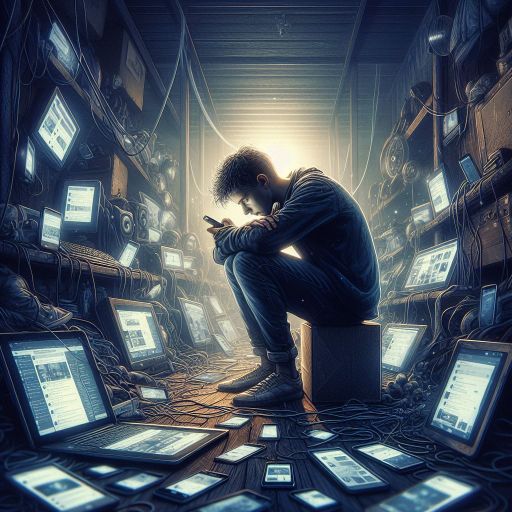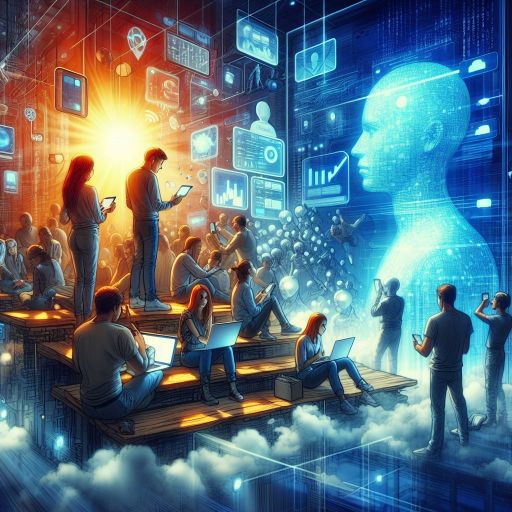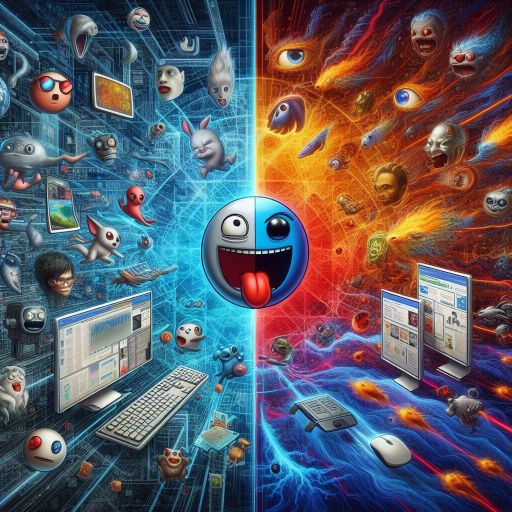Advertisement
The internet has an effect on almost everything in our lives, from the ability to read newspapers worldwide to how research and collaboration take place. One of the most revolutionary things about the internet is social networking.
For instance, Twitter allows us to see what our friends are doing right now, blogs let individuals engage with people not likely to be published by traditional media, and Facebook helps us re-establish contact with people we haven’t talked to in years.
This has led to an explosion of new content and services in recent years. Although sites such as Facebook and Twitter are often termed “social media,” they have far broader implications for the experience of using the web.
Real-time communication, community building, and diverse voices are some of the aspects that have been transformed through social media.
Additionally, these platforms have altered information consumption by creating personalized feeds and algorithms that guide our online experiences. All of this can be collectively called “the online culture” of today.

The Cultural Shift: From Offline to Online
The shift from offline to online culture has been deep and comprehensive. However, our interactions are mainly done personally, and our social lives are basically bound up in the physical domain.
Now, though, there is a new world of order, thanks to the internet. In this digital age, social media platforms are like town squares or coffee shops where friendships are made, views are aired, and fashions begin.
The digital shift has also changed how we work. Remote working used to be unusual but has now become very popular as a result of online-based tools that allow worldwide collaboration.
Thus, the old-fashioned 9 a.m. to 5 p.m. job is being replaced by flexible hours that suit each country’s time zone or individual employees’ wishes due to online facilities.
Besides, almost all information about the world can be traced on the World Wide Web today.
Education no longer takes place in confined classrooms because people can study through online courses and other materials using their internet-enabled devices. Art and other forms of entertainment are consumed digitally through pocket-size gadgets.
The Global Village: The Internet as a Tool for Unity and Division
The “global village” concept by media theorist McLuhan popularizes the internet as a force for unity and closeness among people.
The internet has indeed provided an unprecedented level of communication and exchange of cultures that makes it possible for individuals from every part of the globe to meet, share ideas, and work together.
The same technology that brings us together can also rip us apart. It widens existing disparities while creating new ones—also known as the “digital divide."
Those who are not connected to the internet do not fully take part in global conversations. Consequently, they miss out on economic opportunities, education, and social life, which depend on connectivity.
Moreover, this divides us into “echo chambers” online with “filter bubbles." They perpetuate users’ biases by personalizing content using algorithms, which may lead to limited or biased views when glued to either positive or negative feedback loops.
Consequently, while the web is seen as a means towards global solidarity and knowledge, there are challenges that need addressing if we are to avoid further social disintegration.
Advertisement
In essence, these issues reflect the delicate balance between cohesion and division in cyberspace—a continuous argument that mirrors the intricate nature of today’s world.

The Influence of Memes and Viral Content
In essence, memes and viral content are the vernacular of the digital age. They are cartoons and satirical essays for this era, in which they can reach millions within seconds with a single click.
Many memes are simple and funny. Often, they transcend language barriers and cultural differences, making them powerful tools for molding public opinion.
However, it is not only about fun. Memes have changed their role into channels of political activism and social transformation.
Memes have the ability to break down complex issues into one image or slogan that can be understood by a large audience. Frequently, they capture what people are thinking at a particular time in history and comment on current events and popular culture.
Despite this. There is worry over the speed with which memes spread, as it could lead to misinformation or manipulation. The rapidity of viral movements means that anything untrue can circulate as quickly as the truth can.
Thus, meme culture has two faces: it provides an equal information distribution platform and gives power to individuals, but it also requires that its audience discern.
Online Culture and its Impact on Traditional Media
The consequences of cyberculture on traditional media are transformative and permanent.
The introduction of Netflix and Spotify streaming services has transformed the entertainment industry and made traditional broadcasting schedules obsolete by making it possible to “watch what you want when you want to."
Traditional print media is being replaced by online publications that are capable of delivering real-time news updates as well as interactive features that were never found in newspapers.
Digital art platforms have revolutionized the art world as they give a chance for individual artists to reach out to millions of people globally without necessarily exposing their works through galleries.

This has affected not only how art is consumed but also its creation, with digital tools enabling new types of expression.
In the future, however, the prospects for online culture are tied up with technological advances. Virtual reality (VR) holds great promise for immersive experiences, which could potentially redefine both storytelling and social engagements.
Besides, it is anticipated that artificial intelligence (AI) could further personalize online experiences through curating content based on individual preferences while possibly creating any new content automatically.
Conclusion
The effects of the internet’s development have greatly changed how we live in different ways, which include day-to-day activities, social interactions, and how we get information.
This change in online culture has also affected work, education, and entertainment, which create possibilities for global unity and challenges like the digital divide or echo chambers.
Advertisement





